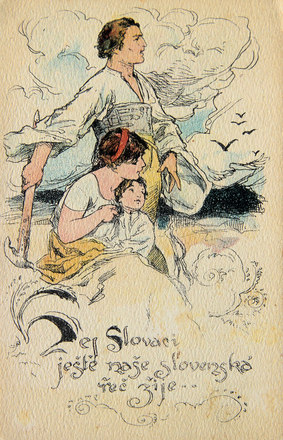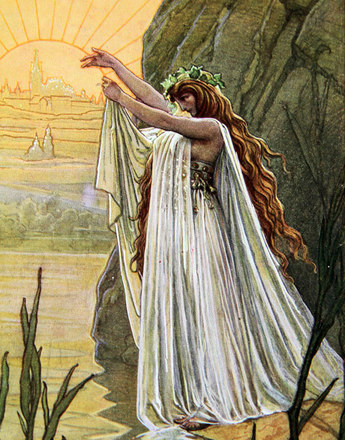For the Slovaks the evolutionary process in becoming a nation was shaped by the many difficulties facing this small ethnic group to assert themselves as “newcomers” among the nationalities of Central Europe.
The Slovaks were regarded in the coeval view of history as “a people without a history”, because they had no classical social élites: the aristocracy professed allegiance to the Hungarian heritage, the civilian population of major conurbations like Pressburg (Slovakian Prešporek, since 1919 Bratislava; Hungarian Pozsony) or Košice (German Kaschau, Hungarian Kassa) spoke either German or Hungarian.
The Slovaks dominated smaller towns and villages in Upper Hungary, identified as the northwestern parts of the Kingdom of Hungary. Slovakia did not exist as an autonomous administrative unit within the context of the Hungarian state, and the Slovakian settlement areas were concentrated in regions that had been deemed for centuries to be integrative components of the Hungarian kingdom.
Because of their numerical paucity – the Slovaks are counted among the smaller Slavic ethnic groups in Central Europe – but also owing to the social structure oriented on peasant farming in the mainly village-based Slovakian settlement areas, a “national re-awakening” among the Slovaks lagged behind other nations.
Accordingly, the initial development of a Slovakian literary language had been delayed. For a long time Czech was used in written media because of its close linguistic relationship. Although the Catholic priest Antonín Bernolák (1762–1813) had in the late eighteenth century developed the first Slovakian literary language based on the West Slovakian dialects, this was rejected by the mainly Protestant Slovakian intelligentsia, comprised of Lutheran pastors from the Central Slovakian mountain region.
The Slovakian standard language that finally prevailed around 1850 was codified by Ľudovít Štúr (1815–1856) on the basis of the Central Slovakian dialects. General circulation of the new standard form was accomplished through the action of the Matica Slovenská, the national cultural association founded in 1863.
In the second half of the nineteenth century the Slovakian emancipation movement was concentrated on the political implementation of the ever louder demands for free development for the Slovaks, who now increasingly felt that they formed an autonomous nation. In 1861 the Slovakian National Party (Slovenská národná strana) published its programme as political mouthpiece of the Slovaks in the Budapest Imperial Diet. This included acknowledgement of Slovakian as equal in status as a language in the administration and school education, also in the establishment of a Slovakian-dominated Upper Hungarian Circle, with the Central Slovakian Banská Bystrica (German Neusohl, Hungarian Besztercebánya) as capital city. The eventual objective was the creation of an autonomous Crown Land of Slovakia, seceded from Hungary.
Translation: Abigail Prohaska
Holotík, L’udovít: Die Slowaken, in: Wandruszka, Adam/Urbanitsch, Peter (Hrsg.): Die Habsburgermonarchie 1848–1918, Band III: Die Völker des Reiches, Wien 1980, Teilband 1, 775–800
Křen, Jan: Dvě století střední Evropy [Zwei Jahrhunderte Mitteleuropas], Praha 2005
Rumpler, Helmut: Eine Chance für Mitteleuropa. Bürgerliche Emanzipation und Staatsverfall in der Habsburgermonarchie [Österreichische Geschichte 1804–1914, hrsg. von Herwig Wolfram], Wien 2005



